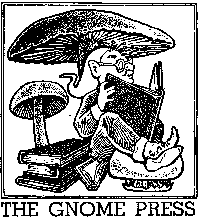Historical fiction is a literary genre in which the plot takes place in a setting located in the past. Although the term is commonly used as a synonym for the historical novel, it can also be applied to other types of narrative, including theatre, opera, cinema and television, as well as video games and graphic novels.

Terry Goodkind is an American writer. He is known for the epic fantasy series The Sword of Truth as well as the contemporary suspense novel The Law of Nines (2009), which has ties to his fantasy series. The Sword of Truth series sold 25 million copies worldwide and was translated into more than 20 languages. Additionally, it was adapted into a television series called Legend of the Seeker, which premiered on November 1, 2008 and ran for two seasons, ending in May 2010.

Although the genre is very old, the romance novel or romantic novel discussed in this article is the mass-market version. Novels of this type of genre fiction place their primary focus on the relationship and romantic love between two people, and must have an "emotionally satisfying and optimistic ending." There are many subgenres of the romance novel, including fantasy, historical romance, paranormal fiction, and science fiction. Romance novels are read primarily by women.
Andre Alice Norton was an American writer of science fiction and fantasy, who also wrote works of historical fiction and contemporary fiction. She wrote primarily under the pen name Andre Norton, but also under Andrew North and Allen Weston. She was the first woman to be Gandalf Grand Master of Fantasy, first woman to be SFWA Grand Master, and first inducted by the Science Fiction and Fantasy Hall of Fame.
Fantasy Masterworks is a series of British paperbacks intended to comprise "some of the greatest, most original, and most influential fantasy ever written", and claimed by its publisher Millennium to be "the books which, along with Tolkien, Peake and others, shaped modern fantasy."

Allen & Unwin is an Australian independent publishing company, established in Australia in 1976 as a subsidiary of the British firm George Allen & Unwin Ltd., which was founded by Sir Stanley Unwin in August 1914 and went on to become one of the leading publishers of the twentieth century.

Tor Books is the primary imprint of Tom Doherty Associates, a publishing company based in New York City. It primarily publishes science fiction and fantasy titles, and publishes the online science fiction magazine Tor.com.

Karl Edward Wagner was an American writer, poet, editor and publisher of horror, science fiction, and heroic fantasy, who was born in Knoxville, Tennessee and originally trained as a psychiatrist. He wrote numerous dark fantasy and horror stories. As an editor, he created a three-volume set of Robert E. Howard's Conan the Barbarian fiction restored to its original form as written, and edited the long-running and genre-defining The Year's Best Horror Stories series for DAW Books. His Carcosa publishing company issued four volumes of the best stories by some of the major authors of the so-called Golden Age pulp magazines. He is possibly best known for his creation of a series of stories featuring the character Kane, the Mystic Swordsman.
A gamebook is a work of printed fiction that allows the reader to participate in the story by making choices. The narrative branches along various paths, typically through the use of numbered paragraphs or pages. Gamebooks are sometimes called choose your own adventure books or CYOA after the influential Choose Your Own Adventure series originally published by US company Bantam Books. Gamebooks influenced hypertext fiction.

The Castle of Iron is the title of a fantasy novella by American authors L. Sprague de Camp and Fletcher Pratt, and of the novel into which it was later expanded by the same authors. It was the third story in their Harold Shea series. As a 35,000 word novella it was first published in the fantasy magazine Unknown for April, 1941. The revised and expanded novel version was first published in hardcover by Gnome Press in 1950, and in paperback by Pyramid Books in 1962. The book has been reprinted by a number of other publishers since its first appearance. An E-book edition was published by Gollancz's SF Gateway imprint on September 29, 2011 as part of a general release of de Camp's works in electronic form. The novel has been combined with other books in the series in the omnibus editions The Compleat Enchanter (1975), The Complete Compleat Enchanter (1989) and The Mathematics of Magic: The Enchanter Stories of L. Sprague de Camp and Fletcher Pratt (2007). It has also been translated into Italian.

A light novel is a style of Japanese novel primarily targeting high school and middle school students. "Light novel" is a wasei-eigo, or a Japanese term formed from words in the English language. Light novels are often called ranobe (ラノベ) or, in the West, LN. The average length of a light novel is about 50,000 words, the equivalent size of an American novel, and light novels are usually published in bunkobon size, often with dense publishing schedules. A distinguishing characteristic of light novels is that they are illustrated with anime and manga art style, often being adapted into such media. They are mainly published in separate book volumes, while some of them have their chapters serialized in anthology magazines before collection in book form, comparable to how manga are published.

Gnome Press was an American small-press publishing company primarily known for publishing many science fiction classics. Gnome was one of the most eminent of the fan publishers of SF, producing 86 titles in its lifespan — many considered classic works of SF and Fantasy today. Gnome was important in the transitional period between Genre SF as a magazine phenomenon and its arrival in mass-market book publishing, but proved too underfunded to make the leap from fan-based publishing to the professional level. The company existed for just over a decade, ultimately failing due to inability to compete with major publishers who also started to publish science fiction. In its heyday, Gnome published many of the major SF authors, and in some cases, as with Robert E. Howard's Conan series and Isaac Asimov's Foundation series, was responsible for the manner in which their stories were collected into book form.
Avon Publications is one of the top most publishers of romance fiction. At Avon's initial stages, it was an American paperback book and comic book publisher. The shift in content occurred in the early 1970's with multiple Avon romance titles reaching and maintaining spots in bestseller lists, demonstrating the market and potential profits in romance publication. As of 2010, Avon is an imprint of HarperCollins.
Jove Books, formerly known as Pyramid Books, is an American paperback and eBook publishing imprint, founded as an independent paperback house in 1949 by Almat Magazine Publishers. The company was sold to the Walter Reade Organization in the late 1960s. It was acquired in 1974 by Harcourt Brace which renamed it to Jove in 1977 and continued the line as an imprint. In 1979, they sold it to The Putnam Berkley Group, which is now part of the Penguin Group.

Science fiction and fantasy in Poland dates to the late 18th century. During the later years of the People's Republic of Poland, social science fiction was a very popular genre of science fiction. Afterwards, many others gained prominence. Currently there are many science fiction writers in Poland. Internationally, the best known Polish science fiction writer is Stanisław Lem. As elsewhere, Polish science fiction is closely related to the genres of fantasy, horror and others. Although many English language writers have been translated into Polish, relatively little Polish language science fiction has been translated into English.

Fantasy Press was an American publishing house specialising in fantasy and science fiction titles. Established in 1946 by Lloyd Arthur Eshbach in Reading, Pennsylvania, it was most notable for publishing the works of authors such as Robert A. Heinlein and E. E. Smith. One of its more notable offerings was the Lensman series.
Lancer Books was a publisher of paperback books founded by Irwin Stein and Walter Zacharius that operated from 1961 through 1973. While it published stories of a number of genres, it was noted most for its science fiction and fantasy, particularly its series of Robert E. Howard's Conan the Barbarian tales, the first publication of many in paperback format. It published the controversial novel Candy by Terry Southern and Mason Hoffenberg, and Ted Mark's ribald series The Man from O.R.G.Y. Lancer paperbacks had a distinctive appearance, many bearing mauve or green page edging.
Jamie Thomson is a British writer, editor and game developer, born 14 November 1958 in Iran and winner of the Roald Dahl Funny Prize 2012.

The Dresden Files is a series of contemporary fantasy/mystery novels written by American author Jim Butcher. The first novel, Storm Front, was published in 2000 by Roc Books.















